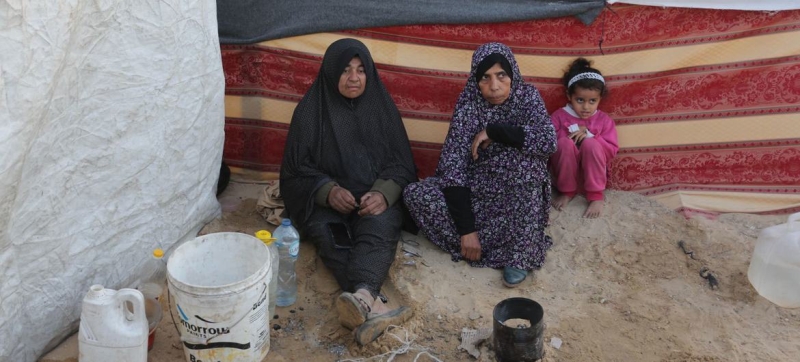
More than 80 percent of women in Gaza depend on food aid. UN calls for more funding for women’s groups in Gaza and the West Bank Humanitarian aid
More than 80 percent of women in Gaza reported that they depended on food aid, and 83.5 percent admitted that the aid they received was insufficient to meet their basic needs, according to a new survey conducted by UN Women.
Experts emphasize that women-led organizations play a key role in providing needed assistance to women and girls. The staff of such NGOs communicate directly with the population and best understand their needs.
Women’s organizations operate in some of the most dangerous areas of Gaza and the West Bank, say UN Women ” They assessed the activities of 25 such NGOs, which employ a total of 1,575 people.
Most of them reported that the buildings where their offices are located were damaged , and some are completely destroyed. Offices serve as operational centers for organizations and are critical to the coordination of care.
Nevertheless, about 60 percent of NGOs continue to carry out their work in full. The commitment of women’s organizations to their cause is obvious, UN Women emphasizes. Most of them, despite difficult and insecure conditions, moved to provide emergency assistance, including the distribution of non-food items, food, cash assistance and the provision of psychosocial support.
Yet almost all women’s organizations are experiencing financial difficulties, and more than half report funding cuts.
“The work of women-led organizations in the Gaza Strip and the West Bank is not only helps women and girls survive, it also gives them hope, helps them maintain their dignity and creates opportunities for a better future,” said UN Women Executive Director Seema Bacchus.
“Investing in their work isn’t just important—it’s key to inclusive solutions that leave no one behind,” she added.
UN Women and women-led organizations call on the international community and stakeholders to take urgent action: increase funding for NGOs helping women and girls, advocate for greater humanitarian access to enable these organizations to expand their work, and include women-led organizations in all humanitarian coordination structures.
Read also:
